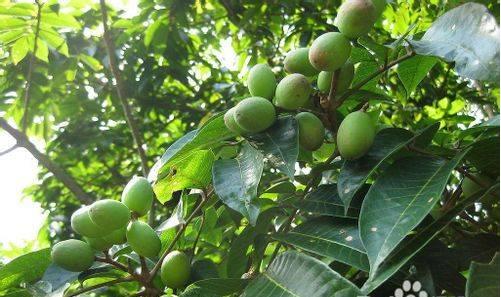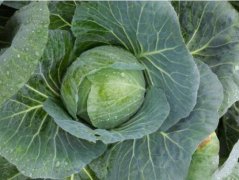What's the advantage of eating olives? What is the effect of olives? what is the efficacy and function of olives?
What are the benefits of olives? can I eat them often? What are the main functions and functions of olives? let's take a look at them together.
Olives are the fruits of olives of Oleaceae. It may be that people began to grow olives before historical records; olives are often mentioned in the Bible. According to the records on the limestone mountains of Athens on the Greek peninsula, it may be the first place for humans to plant olive trees. The Spaniards were brought to California in 1769.
Olive pulp contains carbohydrates, and a small amount of protein, fat, vitamin A, B1, B2, C, E, nicotinic acid, mineral calcium, iron, potassium, sodium, magnesium, manganese, zinc, copper, selenium, volatile oil, geraniol, tannic acid, etc., in which calcium, iron and vitamin An are rich.

The bitterness in olives is due to the phenolic sugars and olivopicrin contained in them. The astringent taste is due to the high amount of tannic acid. At full maturity, the pulp contains 15% Mel 35% oil, and the core contains about 5% oil.
Olive oil contains saturated fatty acids, monounsaturated fatty acids and polyunsaturated fatty acids. The biggest nutritional feature of olive oil is that it is rich in monounsaturated fatty acids, namely oleic acid. Olive oil contains fat-soluble vitamins A, D, E and K. There are other active ingredients, such as phytosterol, squalene, polyphenols and so on.
Olives and olive oil have many health functions:
1. Cardiovascular protection: according to research, monounsaturated fatty acids are more stable than unsaturated fatty acids, the lipoproteins and cell membranes are not easy to be oxidized, and they have similar health functions to polyunsaturated fatty acids. It has a good effect on the metabolism of triglycerides and cholesterol in the body.
Oleic acid rich in olive oil can reduce the content of total cholesterol and bad cholesterol in the blood, increase the content of good cholesterol, and then prevent cardiovascular disease. In addition, polyphenols in olive oil also have the function of reducing coronary heart disease. In countries around the Mediterranean, people's average intake of fat and cholesterol is similar to that of the United States, but the incidence of heart disease is much lower. Starting with the Mediterranean diet, the researchers found that these foods contain large amounts of monounsaturated fatty acids, mainly from olive oil, which is very different from American foods with saturated fatty acids.
two。 Cancer prevention: plant sterols in olive oil can inhibit abnormal proliferation of intestinal cells and prevent colon cancer. Olive oil contains a high amount of squalene, which can inhibit the reduction of β-hydroxy-β-methylglutaryl-co-A, which is related to the activation of cancer cells, such as breast cancer and prostate cancer.
3. Moisturize the scalp: warm olive oil has an excellent moisturizing effect on dry hair and scalp.
4. Comfortable skin: topical olive oil can relieve insect bites, itching and bruising.
5. Prevent constipation: olive oil can promote intestinal peristalsis to relieve constipation.
6. Prevention of gallstones: olive oil can stimulate the liver to produce bile and prevent the formation of gallstones.
7. Promoting pharynx and detumescence: olives contain a lot of tannic acid, volatile oil, geraniol and so on, which can moisturize the throat, resist inflammation and detumescence.
8. Shengjin quench thirst: olive taste sweet acid, contains a lot of water and a variety of nutrients, can effectively supplement the body fluids and nutrients, with the effect of invigorating body fluid and thirst.
- Prev

What are the crop characteristics of beans? are there any pesticide residues in beans?
Do you like beans? Do you know if they have pesticide residues? An inspection found that the unqualified rate of pesticide residues in legume agricultural products such as string beans, peas, beans, etc., was as high as 63%. Among them, the kinds of pesticide residues detected include tetrachloroisobenzonitrile and subchlorinated culture.
- Next

Kale: does kale contain sugar? What is the nutritional value and efficacy of cabbage?
Is cabbage also an anti-cancer crop? Is it true that some people say it is the best anti-cancer crop? Let's take a look. Cabbage, also known as "cabbage", is the stem and leaf of cruciferous cabbage, also known as "cabbage". Original production
Related
- A one-day flower show brings 130 million yuan in orders! Nanhai, this Phalaenopsis exhibition is amazing
- What do the flower language and meaning of Lutheran tree mean? Precautions for planting Lutheran tree
- Encounter Chaoshan Kongfu tea, not without this cup of Phoenix single clump
- The durian market in Vietnam and Thailand is flooded. The price of imported durian has plummeted by 30-40% in a month.
- Shanghai solved the problem of local vegetable supply by planting 80,000 mu of green leafy vegetables.
- Wageningen University has become the best agricultural university in the world for the seventh time in a row.
- The strongest export season of South African grapes is full of challenges, with exports to Russia falling sharply by 21%.
- Sri Lanka is on the verge of bankruptcy, "Tea for debt" Organic Agriculture Revolution aggravates the Food crisis?
- Turning waste into earthworm manure and worm manure into organic fertilizer-A new choice for auxiliary farming
- Organic rice growers shoulder the responsibility of nurturing agricultural talents! Yinchuan Sustainable Farm with Organic Life Camp

